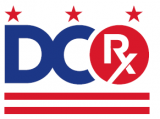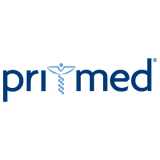Did you mean: Risk of addiction?
Navigating Power Differentials as a Physician in the “Me Too” Era

With a documented rise in reports of sexual harassment and inappropriate sexual behavior across medical specialties in the workplace, it is important for physicians and medical leaders to be aware of the prevalence of problematic sexual behavior in physicians.
Category
Format
- Self-study / Enduring
Credits
- 1.00 MOC II
- 1.00 AMA PRA Category 1 Credit™
MEDICATION ERRORS: UNDERSTANDING THE CAUSES AND DESIGNING EFFECTIVE RISK MANAGEMENT STRATEGIES

The purpose of this module is to engage health care providers (prescribers), pharmacists, and other health care professionals in evidence based practices to avoid medication errors and enhance patient safety. Successful attainment of knowledge by the learner will enable improved awareness and lea
Category
Format
- Self-study / Enduring
Credits
- 2.00 AMA PRA Category 1 Credit™
Duty to Report to the State Medical Board of Ohio
As a licensee of the State Medical Board of Ohio, you have a statutory and ethical duty to report misconduct.
Category
Format
- Self-study / Enduring
Credits
- 1.00 Participation
Curbside Consults: Top Questions from PCPs on Medical Errors and Domestic Violence

What do primary care providers need to know about medical errors and domestic violence? Join expert faculty as they review important questions they get asked about these topics!
Category
Format
- Self-study / Enduring
Credits
- 1.00 AMA PRA Category 1 Credit™
Pennsylvania: CME Consult
To
Category
Format
- Self-study / Enduring
Credits
- 6.00 AMA PRA Category 1 Credit™
Updates in CT Lung Screening

This CME activity is intended for primary care providers to understand the importance of lung cancer screening for their patient population.
Category
Format
- Self-study / Enduring
Credits
- 0.75 AMA PRA Category 1 Credit™
How to Taper Patients Off of Chronic Opioid Therapy

Internet Enduring Material Sponsored by the Stanford University School of Medicine. Presented by the Department of Psychiatry and Behavioral Sciences at Stanford University School of Medicine
Category
Format
- Self-study / Enduring
Credits
- 1.25 AMA PRA Category 1 Credit™
What Are the Pharmacologic Options for Obesity Management and How Can PCPs Use Them to Best Effect?

Explore the ins and outs of currently available anti-obesity medications (AOMs) and when to consider adding AOMs to your patients’ treatment plans for sustainable weight management. Come away feeling fully equipped to manage obesity with the complete range of available options.
Category
- Weight Management
Format
- Self-study / Enduring
Credits
- 0.43 AANP Contact Hours
- 0.43 AANP Pharmacology Contact Hours
- 0.50 AMA PRA Category 1 Credit™
P.A.C.T.: Practical Approaches to Comprehensive Treatment of Pain

The nation is facing competing public health issues: the need to treat a large number of Americans with acute and chronic pain vs the crisis of prescription opioid abuse.
Category
Format
- Self-study / Enduring
Credits
- 3.50 AANP Contact Hours
- 1.59 AANP Pharmacology Contact Hours
- 3.50 AMA PRA Category 1 Credit™
Navigating Pain Management: A Case Study Addressing Strategies for Initial Treatment and Counseling

When considering opioids for treating both short-term and long-term pain, it's crucial to prioritize patient safety. This means conducting thorough risk assessments and engaging in open conversations with your patients.
Category
Format
- Self-study / Enduring
Credits
- 0.38 AANP Contact Hours
- 0.19 AANP Pharmacology Contact Hours
- 0.50 AMA PRA Category 1 Credit™

 Facebook
Facebook Twitter
Twitter LinkedIn
LinkedIn Forward
Forward